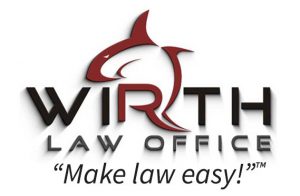Contact an Experienced Attorney When Assistance Needed
Video Transcribed: Is your Oklahoma felony eligible for expungement in Oklahoma? I’m Oklahoma Attorney James Wirth, and we’re about to talk about who qualifies to get their felony expunged in Oklahoma. There’s been a lot of changes under Oklahoma law over the last few years, about the last six years it seems.
Every November first there’s a new statute regarding expungement. They keep getting updated, and they’re becoming more favorable for those that are seeking to seal their records. Criminal justice reform has come through Oklahoma, and there’s been some changes that make this the best time there’s probably ever been in Oklahoma to file for an expungement.
But, who qualifies to get a felony conviction expunged? First off, we’re talking about convictions on a felony. That means if you got a deferred sentence, or you had charges filed but they were dismissed, or you were acquitted at a jury trial or a bench trial, none of that is applicable to you. This video is about convictions. I’ll have other videos for those that don’t have convictions that want to get their records cleaned up.
Most of the laws regarding expungement in Oklahoma fall under one statute, title 22 section 18, and there’s multiple subsections regarding felony convictions there I’m going to go over one by one. The first subsection I want to talk about is subsection three, and what that deals with is actual factual innocence based on DNA evidence.
Obviously this one is not that common, but if you have a conviction and later there’s DNA evidence proving that you were not guilty, then there is a subsection for that, that allows expungement on the basis of innocence based on DNA evidence.
The next subsection that’s applicable, and this one’s going to be a lot more widely applicable than the prior one, is for those who have one and only one felony conviction. So under this, you can’t have any other felony convictions, you can’t have any pending misdemeanors or felonies, and to qualify it must be a non violent offense. And then, at least seven years has to have passed before you’ve had a conviction of any felony, or any misdemeanor.
And, at least five years has passed since the completion of your felony sentence. So if five years has passed since you’ve completed your felony sentence and you haven’t had any misdemeanors in at least seven years, then you’re eligible for a complete expungement under that subsection. And, complete expungement means it doesn’t just expunge the court case, it also expunges the arrest record with OSBI, and that’s what feeds into a federal system, so it’s a complete expungement on those.
 But, what if you have more than one felony conviction? Well, it ramps up. So, if you have two felony convictions, only two felony convictions, you don’t have any pending cases, then what we’re talking about is subsection 13 of that statute.
But, what if you have more than one felony conviction? Well, it ramps up. So, if you have two felony convictions, only two felony convictions, you don’t have any pending cases, then what we’re talking about is subsection 13 of that statute.
Under that rule, the felony convictions cannot be 85% crimes, which are more serious crimes, or you’re required to serve 85% of the sentence. There’s a list of them in the statute. If it’s one of those, it doesn’t qualify under here.
But, if they’re not those, then 10 years has to have passed since the completion of your last sentence regarding a felony convictions. So if 10 years has passed on both of those, you don’t have any pending cases and no pending misdemeanors or felonies and it’s not an 85% crime, then you’re eligible to get a complete section 18 expungement.
Okay, so what if you have more than two felony convictions? Well first off I should tell you, the way those are counted are not just based on the conviction. If you’ve got multiple convictions that are related to the same conduct at the same time, those may under the law count as one conviction. Talk to an attorney about that if you fall under those circumstances.
If those cases we’re talking about are based on a deferred sentence, deferred sentence is not a conviction unless it’s accelerated to a conviction. If it’s a dismissed charge, you get charges filed against but they’re dismissed, not a conviction, doesn’t count here. But, if you have more than two felony convictions, this section is not applicable, but there is another section that is.
That’s where we talk about subsection four, and what that says is that if you have had a pardon on all of your offenses, so you have these felonies. If you get a Governors pardon on those, then you’re eligible for an expungement. This is new.
Previously if you had those circumstances where you had violent offenses or you had more than two felony convictions, having a pardon was not sufficient by itself. Now, as long as you have a pardon, the Pardon Parole Board recommends it, Governor signs off on it, then you’re eligible for a complete expungement on those.
These can be complicated when you’ve got different cases in different counties, or you’ve got misdemeanors and felonies, some that are dismissed, some that are convictions. So for those to see how they all play together, there may be a special order to do things in to make it work, you’re going to want to talk to an attorney. If you’d like to talk to me about your specifics and to check your eligibility, contact me by going to MakeLawEasy.com.










